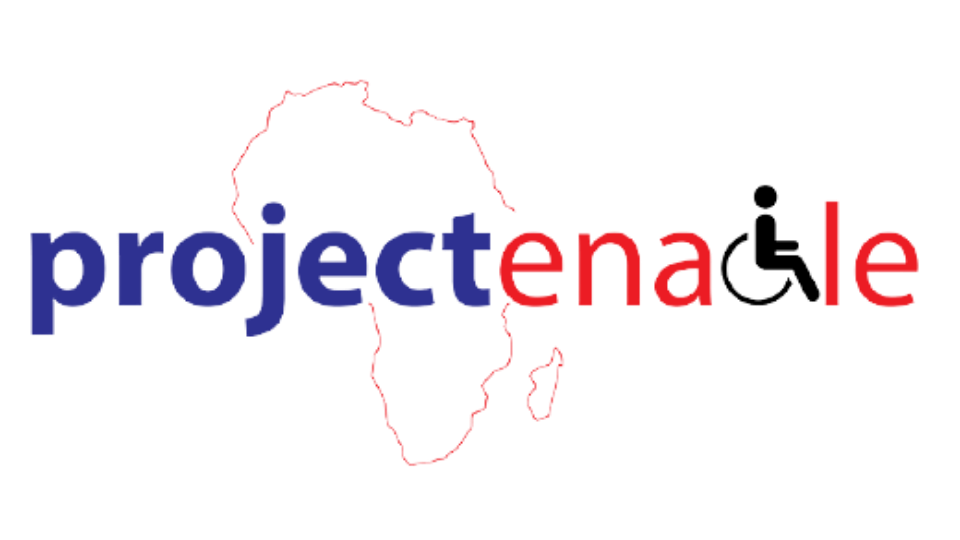Who We Are
Project Enable Africa is incorporated with the Nigerian Corporate Affairs Commission as Stanforte Edge Ltd/Gte. The organisation was founded in 2014 with the mission to promote the rights, empowerment and social inclusion of persons with disabilities. We envision an African continent that is inclusive for persons with disabilities to prosper. To achieve our corporate shared vision and mission, we:
- advocate for disability inclusion in public and organisational policies through curated content, research, and various stakeholders’ forums and high-level events at local and global platforms, including at United Nations Conference, to find solutions for various disability issues;
- run training programs for young persons with disabilities towards positioning them for economic opportunities in the formal and informal sectors;
- sensitise society on the need to reduce discrimination against persons with disability;
- and contribute to strengthening the leadership of the associations and organisations of persons with disabilities across Nigeria to respond proactively to the various challenges of the community.
In 2018, we launched the Inclusion Hub, a disability-focused digital training centre for persons with disabilities in Lagos. This launch of this hub helped amplify our digital inclusion program for persons with disabilities and the promotion of inclusion products and services. Since then, we have trained persons with disabilities across Nigeria in various ICT skills, including graphics, social media management, picture, audio, and video editing, data management, and coding. In 2019, we hosted a disability-inclusion hackathon that birthed 3 new products that have now become independent organisations. These include Vinsight, which created a currency recognition mobile app for visually impaired people, and TheraConnect, which helps parents of children with disabilities find and connect to caregivers across Nigeria.
Our work is driven by the social model of disabilities, which highlights the society, rather than the impairments of persons with disabilities, as the disability factor. We believe that there is productivity in disability, and removing the disabling barriers to give persons with disabilities equity and belonging in society so that they can lead productive lives.
Our Vision
We envision an African continent that is inclusive for persons with disabilities to prosper.
Why We Work to Promote Disability Inclusion
The World Health Organization estimates that there are approximately 25 million persons with disabilities in Nigeria, with nearly 40% of people with disabilities in Nigeria having multiple impairments. Of every 10 people with disabilities in Nigeria, approximately 9 live below the poverty line. Persons with disabilities are the most marginalised population, and they are regarded as the most disadvantaged in any community or crisis. This is because disability can significantly reduce access to education, employment, opportunities and resources, therefore, increasing the risk of poverty. Poverty and disability often reinforce each other, creating a cycle.
Particularly, persons with disabilities face various barriers to accessing economic opportunities. Leonard Cheshire estimated the unemployment rate of persons with disabilities in Nigeria (15-24 years) to be 77 per cent, compared to 49 per cent amongst persons without disabilities. Persons with disabilities are underrepresented in the Nigerian labour market, with women with disabilities frequently experiencing the combined disadvantages associated with gender and disability. Moreover, those who are in work face further obstacles to progression.
Addressing unemployment among persons with disability is a multifaceted task. This is because exclusion is often multidimensional and complex. However, a 2019 Labour Market Assessment Report by Sightsavers Nigeria found two leading barriers to the employment of persons with disabilities in the formal sector. First is that there is a chronic lack of relevant skill sets, aspirational limitations, and a shortage of supply of qualified talents with disabilities for the formal sector in Nigeria. On the other hand, contrary to initial assumptions, most corporate organisations are not necessarily discriminating against persons with disabilities. They only lack the disability confidence to engage talents with disabilities. This presents a two-side of the same problem: a gap in the demand and supply of talents in the formal sector.
Albeit, the Discrimination Against Persons with Disabilities (Prohibition) Act (2019) in Nigeria provides a legal framework for the protection of the rights of persons with disabilities, including their rights to employment. Specifically, the law demands that employers reserve 5% of their workforce for persons with disabilities, and January 2024 is the deadline. Addressing the supply side of talents with a disability is important if the private sector complies with this law. And this starts with formal and informal education for young persons with disabilities. Likewise, employers of labour must develop their disability confidence in order to position to engage persons with disabilities productively. This confidence must begin with inclusive policies that translate to inclusive processes, programs and platforms for all.
Empathy
Collaboration
Innovation
Accountability
Post-COVID Ten-Year (2020-2030) Strategy Summary
Project Enable Africa’s post-COVID ten-year (2020 to 2029) strategic objective is to bridge the gap between the demand and supply of talents with disabilities in the formal and informal sectors. To achieve this objective, we are:
- addressing the demand-side by working with corporate organisations and public sector institutions to build disability confidence in policies, processes, programs and platforms;
- addressing the supply-side by upskilling young persons with disabilities with communication, employability, digital and sector-specific skills, and placing them in jobs;
- training and proving business support services to existing and aspiring entrepreneurs with disabilities to strengthen, formalise, and scale their businesses;
advocating for inclusive employment and business ecosystem in Nigeria; - addressing wider issues affecting the productivity of persons with disabilities, including healthcare, access to formal education, civic (political) participation, and gender-based violence.
